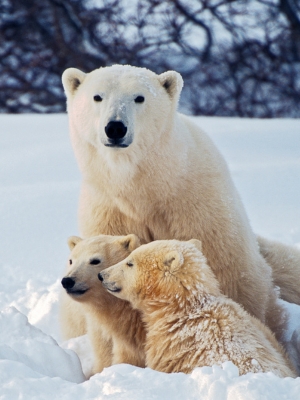A video has been circulating on social media and major national news outlets featuring a seven-year-old alligator named Wally being walked by a young girl on a leash through the fountains at Love Park in Philadelphia, Pennsylvania. Allegedly, several onlookers stopped to hold, pet, walk, or take pictures with Wally at the park. According to his owner, Joseph Henney, Wally is his Emotional Support Animal (ESA). Though the exact details remain unclear, Henney claims that he “rescued” Wally in 2016 and has had him ever since. He got Wally certified to be an ESA in 2018.
The Media Sets the Wrong Tone
Concerningly, newscasters reporting on this story were generally amused, and not alarmed, despite the glaringly obvious safety risks to people (particularly young children) being within biting distance of the alligator. For example, in a CNN broadcast, one newscaster claimed that he knows someone in Miami, Florida, that keeps a 12-foot gator in his front yard as his pet, stating that: “it’s not that weird for Florida.” In a direct quote from a news article, the author problematically (and falsely) asserts that: “The reptile isn’t a wild beast: It’s the emotional support animal of a Philadelphia man who runs several social media accounts documenting his loving relationship with Wally the alligator.” These very public reactions dangerously influence how people perceive alligators; by framing this news story as a light-hearted, silly occurrence, these news stations consequently put the public at risk by minimizing the very real danger that alligators can pose to humans.
These very public reactions dangerously influence how people perceive alligators; by framing this news story as a light-hearted, silly occurrence, these news stations consequently put the public at risk by minimizing the very real danger that alligators can pose to humans.
Keeping an Alligator as a Pet Is Cruel and Dangerous
According to an interview with The Guardian, Henney, from York, Pennsylvania, has a letter from his doctor stating that the alligator’s companionship is necessary to maintain his mental wellbeing, thereby granting Wally the ESA qualification. Apparently, Wally and Henney sleep together in the same bed. An ESA is afforded several privileges that pets without the same certification are not. An ESA cannot be banned by a landlord, for example, or prohibited from living in university accommodation. While the ESA certification allows Wally to travel with his owner to public places throughout Pennsylvania, he would not be permitted to do so in states that legally ban the possession of wild animals, including alligators, as pets.
In the interview, when asked “What happens when your emotional support alligator bites someone?” Henney responded with: “WallyGator has never bitten anyone. He’s super sweet-natured,” (The Guardian 2022). While this may be true (albeit shockingly) during Wally’s few years in Henney’s possession, painting an alligator as a loving and trustworthy companion animal gives people the wrong idea. Alligators are dangerous. They are unpredictable. They can be extremely aggressive. They are still wild animals, despite sleeping in a human bed every night. They will always crave swimming in open waters, hunting prey, basking in the sunlight, and above all, their freedom.
Alligators are dangerous. They are unpredictable. They can be extremely aggressive.
For example, while alligator attacks are relatively rare when unprovoked, in 2016, a 2-year-old boy was fatally attacked by an alligator at a Walt Disney World resort hotel in Orlando after being dragged into a lake.
In August 2022, the same month that Wally’s story broke, a wildlife expert at the Florida Gator Gardens was attacked by an alligator for the second time in ten years during a “routine interaction.” He was sent to the hospital after the alligator crushed his entire lower arm. Doctors allegedly found his hand dangling from one “tendon and some muscle that the surgeon had to untwist 6 times.” The expert was at risk for amputation, but after nine hours of surgery, the doctors were able to recover his arm. In a Facebook post shared by the wildlife park following the incident, they acknowledged that training alligators and interacting closely with them goes against several of their natural instincts.
Just last week, an 88-year-old woman was killed by an alligator while she was gardening after falling into a pond in Sun City Hilton Head, South Carolina.
The Florida Fish and Wildlife Commission notes that even though Florida averages about ten unprovoked alligator attacks per year, this rate has been increasing by about 3% each year. It is likely that social media is one of the main contributing factors responsible for the increase in alligator attacks and deaths observed today, as videos and photos featuring riskier behavior with dangerous animals tends to increase user popularity.
Wild Animals Are Not There for Our Emotional Support
Henney later admits in the interview that “[he] wouldn’t recommend that anyone get [an alligator]. If you don’t know what you’re doing, you will get bit.” While this statement exposes the unpredictability of interacting with an alligator, unfortunately, this statement is not what most people fixate on. Instead, people are enamored with the image of Wally, seemingly tame, walking in what appears to be a dog harness through the Philly park fountains with the young girl in tow, as newscasters fawn over the “loving” bond between the owner and reptile. When the interviewer inquired “What’s next for WallyGator?” Henney responded that he plans to enter him in an annual contest called America’s Favorite Pet. Hopefully, for the safety of America’s households and to preserve any future alligators’ freedom, Wally will not be awarded a place in this competition. No wild animals should be in the running for America’s favorite pet. Wild animals belong in the wild.
Wally will continue to get bigger each year and could live for up to 80 more years. Male alligators can grow to more than 13 feet in length and weigh more than 500 pounds. How will Henney continue sleeping with — or even attempt to handle — Wally at that size?
Emotional Support Animal Designation Should Never Apply to Wild Animals
Animals can provide comfort and reduce stress or anxiety, but ESA certification should never be applied to wild animals. This certification gives animal owners a false sense of safety, when in reality, permitting these animals to live in more residences, roam in more public places, with someone who may be emotionally compromised and thus more vulnerable, concocts the perfect mixture of dangerous elements that altogether create a deadly situation. A certification does not erase the genetic makeup created over several millions of years.
Keep Wildlife in the Wild,
Devan
We are a nonprofit committed to wildlife conservation, welfare, and rescue. Making resources free and widely distributed, like our news items, is an important part of our mission. If you found this article helpful, enjoyable, or enlightening, please donate to help keep these resources available, and Keep Wildlife In The Wild.
Thank You,
The Born Free USA Team

 Dear Reader,
Dear Reader,